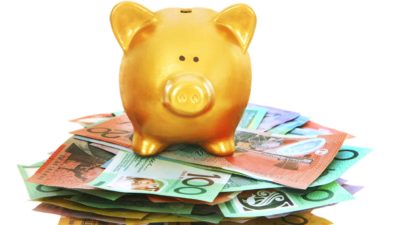You know the stock market is apparently in freefall, right?
The huge slump in the wake of COVID-19.
Yeah, that one.
You might, then, have been as surprised as I was when I read a tweet this morning that the US tech-laden NASDAQ Composite was down by…
… get this…
Only 2.7% in 2020.
Yes, almost 4 months into the topsy-turvy year that has been 2020, and the NASDAQ is down ever so slightly.
Which prompted me to look at the ASX.
Turns out, the All Ordinaries — our broadest index — is down 15%.
I kept digging. Bear with me, because the time frame is changing.
I looked at the ASX sectors over the last month. That's after the pain of the first big Corona-related fall.
The All Ords is up 10.5%.
But the sector numbers are meaningfully different.
See, if you own banks and other financials, you're only up 4.6%.
If you own Consumer Discretionary stocks, you've gained 16%, and IT companies are 22% to the good.
That's the problem with market averages — they assume you own everything in proportion.
You didn't have to own the banks, of course. I hope you didn't.
As I wrote on April 8 this year:
"I have no crystal ball. And, to be sure, bank shares have fallen a long way, broadly in line with the market (unsurprisingly, since financial companies make up more than one third of the ASX, by value).
"And they look cheap, at least based on last year's profit numbers.
"It's unlikely that those profits can be maintained as we get to the end of the 2019/20 financial year, and head into a new one on July 1.
…
"At the very least, I want our members and readers to really think hard about how much of their portfolio should be invested in the banks."
Yesterday, NAB released some terrible numbers. Profit cut in half. Dividend slashed by around two-thirds. $3.5 billion in new equity being raised.
Let's change timeframes again.
Over the last 12 months, Australian financial services companies have seen their shares fall by a collective 32%, compared to the market's 16.8% loss.
Then remember that the banks and insurers are around one-third of our index. Back that out, and the losses on the ASX are much, much less painful than they look.
Of course, data can be tortured until it screams, and be made to show whatever you want it to.
But the point is worth making — and repeating.
The good news is that it seems — touch wood — that we're getting in front of the Coronavirus pandemic, as a country. If we continue to be lucky, and we continue managing well, the economic impact won't be as deep or long lasting as it might have been.
Oh, it'll be deep. And it'll last longer than we all think is comfortable.
But it could have been much worse (and still can be, if we get complacent).
For the record, even if the worst case will be avoided, I still wouldn't be investing in bank shares.
By the way, energy companies (think: oil and gas) are down 42% over that same timeframe.
It's been a tough time to invest in the 'old faithfuls'; the companies usually considered 'blue chip'.
Did you know that the ASX Financials sector is down 38% over the past 5 years?
That's a long time to be waiting for a 'recovery'.
Now maybe — maybe — that means the banks are due for a bounce.
Maybe.
Stranger things have happened.
But I don't think it's a sector that — considering the companies, the macro environment and, most importantly, the available alternatives — deserves your investment dollars.
There are simply too many headwinds, and too few tailwinds.
Especially now that the dividends cuts we warned you about are starting to happen.
(By the way, doesn't it strike you as a little, well, strange at the very least that NAB is paying out hundreds of millions of dollars in dividends, while raising $3.5 billion in new capital? Me too.)
All of that said, I'm not here to hate on the banks. And I'm not here to take a victory lap. I don't do that. I hate victory laps (and they have a way of coming back to bite you).
I simply want to remind you that just because a company is considered 'blue chip', doesn't mean you should invest in it.
Indeed, while 'blue chip' sounds like a label that's soberly applied by boffins when companies meet some preset criteria, I have a sneaking suspicion that it's been co-opted as (or perhaps always was) a sneaky marketing term dressed up in analytical language so more financial services types can sell you more of their products.
So don't own them just because you're told they're 'blue chip'. Or because everyone else owns them.
I understand why people own bank shares. The history (and mythology) is strong. The yields have historically been high. The usual suspects have told you to buy them. And, frankly, there can feel like no alternative, in the search for tax-effective income, particularly in retirement.
But please be careful.
In all likelihood, there is more market volatility to come.
And more companies that will fall partly or completely by the wayside in its wake.
You need to be diversified.
You need to know why you own the shares you own, and that has to be more than the simple gimmicky labels like 'growth company' or 'blue chip'.
And, once you're confident with the companies you own — not just because they're the 'usual suspects' — you need to hold your nerve when things inevitably get rough.
It won't be smooth sailing, but this, too, shall pass.
Fool on!








